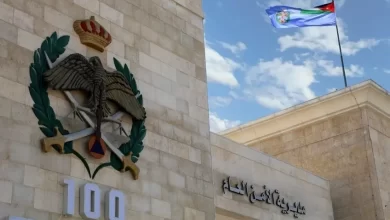Emergency Officer, P4, Gaborone, Botswana

.
WFP celebrates and embraces diversity. It is committed to the principle of equal employment opportunity for all its employees and encourages qualified candidates to apply irrespective of race, colour, national origin, ethnic or social background, genetic information, gender, gender identity and/or expression, sexual orientation, religion or belief, HIV status or disability.
ABOUT WFP
The United Nations World Food Programme is the world's largest humanitarian agency fighting hunger worldwide. The mission of WFP is to end global hunger. Every day, WFP works worldwide to ensure that no child goes to bed hungry and that the poorest and most vulnerable, particularly women and children, can access the nutritious food they need.
In emergencies, WFP gets food to where it is needed, saving the lives of victims of war, civil conflict and natural disasters. After an emergency, WFP uses food to help communities rebuild their shattered lives. Present in nearly 120 countries, the organization has the global footprint, deep field presence and local knowledge and relationships necessary to provide access to nutritious food and contribute to the lasting solutions, especially in many of the world’s most remote and fragile areas. We manage an operating budget of approximately $5.9 billion each year, distributing 12.6 billion rations to those most in need. We reach an average of 80 million people with food assistance in around 80 countries each year.
The World Food Programme office in Johannesburg is a Regional Office coordinating and supporting the delivery of humanitarian assistance to 12 Southern Africa countries including Angola, Democratic Republic of Congo, Eswatini, Lesotho, Madagascar, Malawi, Mozambique, Namibia, Republic of Congo, Tanzania, Zambia, Zimbabwe. For more on WFP and what we do, please go to http://www.wfp.org/videos/zero-hunger
BACKGROUND
The United Nations World Food Programme (WFP) is a reputable and the world’s largest humanitarian organizations, operating in more than 120 countries and territories, bringing life-saving assistance in emergencies, building pathways to peace, stability and prosperity for people recovering from conflict, disasters and the impact of climate change and supporting sustainable and resilient livelihoods for a world with zero hunger. This is achieved through the management of an emergency preparedness and response portfolio, providing a field focused, service oriented, steering and convening role focusing on forward looking preparedness and support to emergencies to ensure a swift, coordinated and integrated response.
The WFP Regional Bureau in Johannesburg (RBJ) covers SADC countries as well as the Republic of Congo (ROC). The food and nutrition situation of the SADC region is worsening due to complex interlinked factors compounded by the COVID pandemic and the Russia-Ukraine crisis. Reversing this trend and addressing the food and nutrition insecurity in the region requires a comprehensive, targeted, and innovative interventions that tackle the root causes and leveraging on the region’s natural resources, human capital, and institutional capabilities.
The SADC region is endowed with land, water, natural resources, human capital, and a youthful population, giving the region immense potential to reclaim its former status of the food breadbasket for the region and much of Africa. Investments in the rural areas can unlock existing capacities and create employment through a focus on agriculture, contributing to economic development and prosperity, nationally and regionally.
JOB PURPOSE
The Southern African Regional Bureau (RBJ) supports Country Offices (COs) and regional partners to prepare and respond to current and future emergencies in a rapidly changing humanitarian environment. RBJ's strategic goal is to assist in developing policies and procedures, as well as operational readiness towards achieving food and nutrition security in the region. In concert with its partners, including the private sector, RBJ provides a field focused, service oriented, steering and convening role focusing on forward looking preparedness and support emergencies to ensure swift, coordinated, and integrated response.
This is done through a combination of activities designed to:
Reinforce WFP's ability to identify and monitor risks and conduct early warning and analysis
- Advocate, steer and support preparedness and operational readiness of institutions and COs
- Assist in developing a common operational scenario to inform decision making and field-focused support.
- Coordinate the identification of opportunities to secure additional emergency staff and non-staff resources from external partners, engaging with relevant actors and stakeholders to support COs or regional institutions.
- Strengthen strategic partnerships.
The overall objective is to provide expertise for the design, management, coordination and implementation of emergency preparedness and response operations, facilitating timely, efficient, and effective approaches that are integrated across functions. The position aims to drive WFP, AUDA-NEPAD, and SADC Secretariat’s JPIT humanitarian strategies for the SADC Region.
The incumbent will work closely with AfHA and assist in enhancing the capacity of SADC Member States in preparedness and response efforts, given that humanitarian needs are expected to increase due to the effects of climatic shock and challenges encountered by extreme weather events in SADC region. The incumbent will also identify areas of collaboration with regional bodies such as the African Risk Capacity (ARC) leveraging each other capacities.
The incumbent will provide expert advice and substantial contributions in identify preventive and adaptative approaches that focus on enabling communities to cope with the adverse effects of climate change, support small holder farmer support including women and Youth as part of addressing agriculture inequalities; and transformation of agricultural sector to provide continuous food supply and quality for SADC Region.
KEY ACCOUNTABILITIES (not all-inclusive)
Main Accountabilities and Responsibilities
The Emergency Officer is expected to play an advisory role to the JIPT on the design and implementation of the emergency officer portfolio. Specifically, under the supervision of the JIPT Coordinator/Head of ARDF Secretariat office and steering/management committee, which the SADC Secretariat shall chair, the selected candidate will be expected to:
Foster strategic and operational partnerships
⦁ Proactively build strategic partnerships and alliances with governments, institutions, regional bodies, and development partners in the region to strengthen emergency preparedness and response at regional and national levels, including supporting activities of AU Champion for Disaster Risk Management.
⦁ Take a leading and collaborative role in strengthening strategic partnership amongst AfHA, JIPT and SADC, ARC, support in organizing discussions on various humanitarian issues, such as preventive, multi-sectoral and nexus approaches including investments in transformative agriculture, focusing on smallholder farmers, women, and youth.
⦁ In collaboration with the Team Leader/ Coordinator, establish and maintain contacts with local authorities, other UN agencies, non-governmental organizations, and other partners, ensure appropriate mechanisms to facilitate exchange of information.
⦁ Promote collaboration and linkages with development, IFI, donors, private sector and other stakeholders.
Knowledge Management (Policy Analysis and Outreach)
⦁ Leverage available funding mechanisms, partnership networks and communication and advocacy platforms to raise visibility of the emergency operation and requirements.
⦁ Assess and advise on the need for and harmonization of risk assessment tools and methodologies, reporting requirements, tools and templates.
⦁ Create opportunities for information exchange, data sharing platforms and knowledge sharing channels, build a network of subject matter experts, community practitioners and technicians, including meteorological agencies, statistical and other specialized institutions, and ministries to enhance emergency response.
⦁ Leverage and coordinate data, knowledge and research to build evidence to scale up best practices and approaches, such as anticipatory actions.
Provide technical advice and operational support
⦁ Lead inter-agency and cross-functional analysis, including context analysis to inform emergency preparedness and response.
⦁ Lead preparation of emergency assessment capacities, contingency planning, scenario building and Concept of Operations to ensure adequate operational readiness and where feasible, a transition plan for more sustainable emergency responses.
⦁ Assess capacity strengthening needs and identify opportunities building on WFP’s comparative advantage and formulate a capacity development action plan in consultation with member states.
⦁ Identify the potential for linking early warning systems to shock-responsive social protection systems and resilience building.
⦁ Lead the design of preparedness measures and emergency response and support the mainstreaming and implementation of cross-cutting issues, including the centrality of protection and gender in humanitarian response.
⦁ Monitor, manage and mitigate risks to the emergency operation and staff wellbeing by coordinating with the Team Leader and the Security Focal Point, and ensure that relevant country specific policies and procedures are implemented.
STANDARD MINIMUM QUALIFICATIONS
Education: Advanced University degree in Humanitarian Affairs, International Development or Social Sciences or other related field. Or First University degree with additional years of related work experience and/or training/courses.
Experience: Eight years or more of postgraduate professional experience in in humanitarian affairs, emergency preparedness, crisis/emergency relief management, rehabilitation, development, or other related area is required. Experience in emergency response in the Southern Africa region is desirable.
Language: Fluency in both oral and written communication in English is essential. Working knowledge of French and/or Portuguese an asset.
DESIRED TECHNICAL SKILLS AND EXPERIENCE
⦁ Experience in the Emergency coordination sector, with direct experience in developing countries.
⦁ Experience coordinating emergency preparedness and response activities with other different stakeholders.
⦁ Experience conducting analytical and conceptual work in support of strategy design and implementation.
⦁ Experience in a humanitarian context within the UN common system or other comparable international organization is desirable.
TERMS AND CONDITIONS
Limited Fixed-Term Appointment (LFT) position is a non-mobile staff appointment in the international professional category for a limited period for up to 4 years and is open to all nationalities. The position is based in Gaborone, Botswana and the selected candidate will be expected to relocate. Incumbents of LFT positions are not eligible to apply for other mobile positions advertised internally through the Reassignment.
WFP offers an attractive compensation and benefits package in line with ICSC standards (http://icsc.un.org) including basic salary, post adjustment, relocation entitlement, travel and shipment allowances, 30 days’ annual leave, home leave, an education grant for dependent children, a pension plan, and medical insurance.
DEADLINE FOR APPLICATIONS
The Vacancy Announcement will close on 07 May 2023, 11:59 South African time
.
Qualified women applicants, people with disabilities and candidates from developing countries are especially encouraged to apply.
WFP has a zero-tolerance approach to conduct such as fraud, sexual exploitation and abuse, sexual harassment, abuse of authority and discrimination. All selected candidates will be expected to adhere to WFP’s standards of conduct and will therefore undergo rigorous background verification internally or through third parties. Selected candidates will also be required to provide additional information as part of the verification exercise. Misrepresentation of information provided during the recruitment process may lead to disqualification or termination of employment.
WFP will not request payment at any stage of the recruitment process including at the offer stage. Any requests for payment should be refused and reported to local law enforcement authorities for appropriate action.




